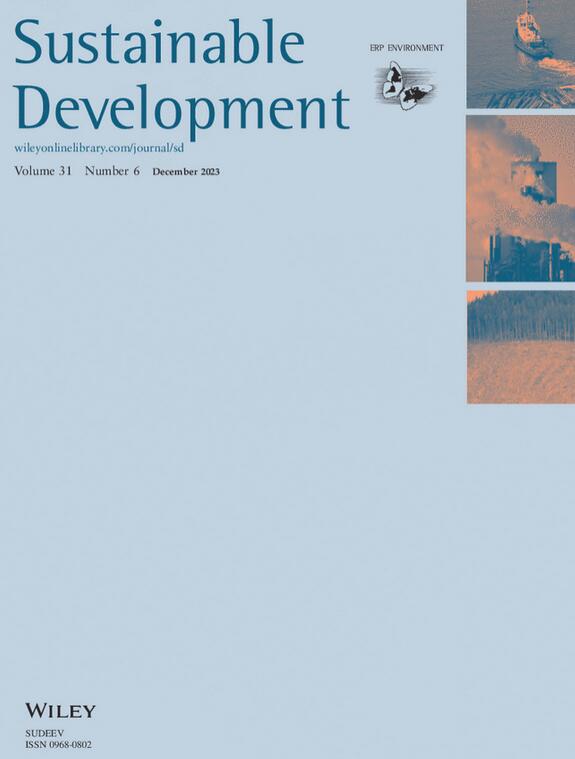清洁能源消费、绿色创新和技术扩散对环境可持续性的影响:来自10个欧盟国家负荷能力曲线假设的新证据
IF 8.2
1区 环境科学与生态学
Q1 DEVELOPMENT STUDIES
引用次数: 1
摘要
在气候变化和环境恶化日益严重的今天,环境可持续性问题日益突出。环境可持续性最重要的组成部分无疑是技术和创新。本研究考察了1990年至2018年欧盟国家清洁能源消费、绿色创新和技术扩散对环境可持续性的影响。在环境库兹涅茨曲线(EKC)假设的框架内,这种关系在文献中经常被研究。在负荷能力曲线(LCC)假设框架内对其进行检验的研究数量可以忽略不计。本研究旨在填补在LCC假设框架内考察关系的文献空白。为此,采用Westerlund(2008)的面板协整检验,在LCC模型中确定协整。三种不同的长期估计量,即rCCE、DCCE和AMG,被用来检验假设的有效性。尽管整个专家组获得的结果表明LCC假设是无效的,但在基于国家的结果中已经确定了该假设存在的证据。因此,LCC假设对丹麦、法国、葡萄牙和西班牙是有效的。总的来说,绿色创新和技术传播对于鼓励环境友好做法的传播和为子孙后代留下一个更宜居的世界至关重要。本文章由计算机程序翻译,如有差异,请以英文原文为准。
The impact of clean energy consumption, green innovation, and technological diffusion on environmental sustainability: New evidence from load capacity curve hypothesis for 10 European Union countries
Abstract Today, when climate change and environmental degradation are experienced, environmental sustainability comes to the fore. The most important component of environmental sustainability is undoubtedly technology and innovation. This study examines the effects of clean energy consumption, green innovation, and technological diffusion on environmental sustainability from 1990 to 2018 in selected European Union countries. This relationship has been frequently examined in the literature within the framework of the environmental Kuznets curve (EKC) hypothesis. The number of studies examining it within the load capacity curve (LCC) hypothesis framework is negligible. This study aims to fill the gap in the literature in the context of examining the relationship within the framework of the LCC hypothesis. For this purpose, Westerlund's (2008) panel cointegration test was applied, and cointegration was determined in the LCC model. Three different long‐term estimators, namely rCCE, DCCE, and AMG, were used to test the validity of the hypothesis. Although the results obtained for the entire panel say that the LCC hypothesis is not valid, evidence for the existence of the hypothesis has been identified in the country‐based results. Accordingly, the LCC hypothesis is valid for Denmark, France, Portugal, and Spain. Overall, green innovation and technological diffusion are essential to encourage the spread of environmentally friendly practices and to leave a more livable world for future generations.
求助全文
通过发布文献求助,成功后即可免费获取论文全文。
去求助
来源期刊

Sustainable Development
Multiple-
CiteScore
17.30
自引率
11.20%
发文量
168
期刊介绍:
Sustainable Development is a publication that takes an interdisciplinary approach to explore and propose strategies for achieving sustainable development. Our aim is to discuss and address the challenges associated with sustainable development and the Sustainable Development Goals. All submissions are subjected to a thorough review process to ensure that our readers receive valuable and original content of the highest caliber.
 求助内容:
求助内容: 应助结果提醒方式:
应助结果提醒方式:


